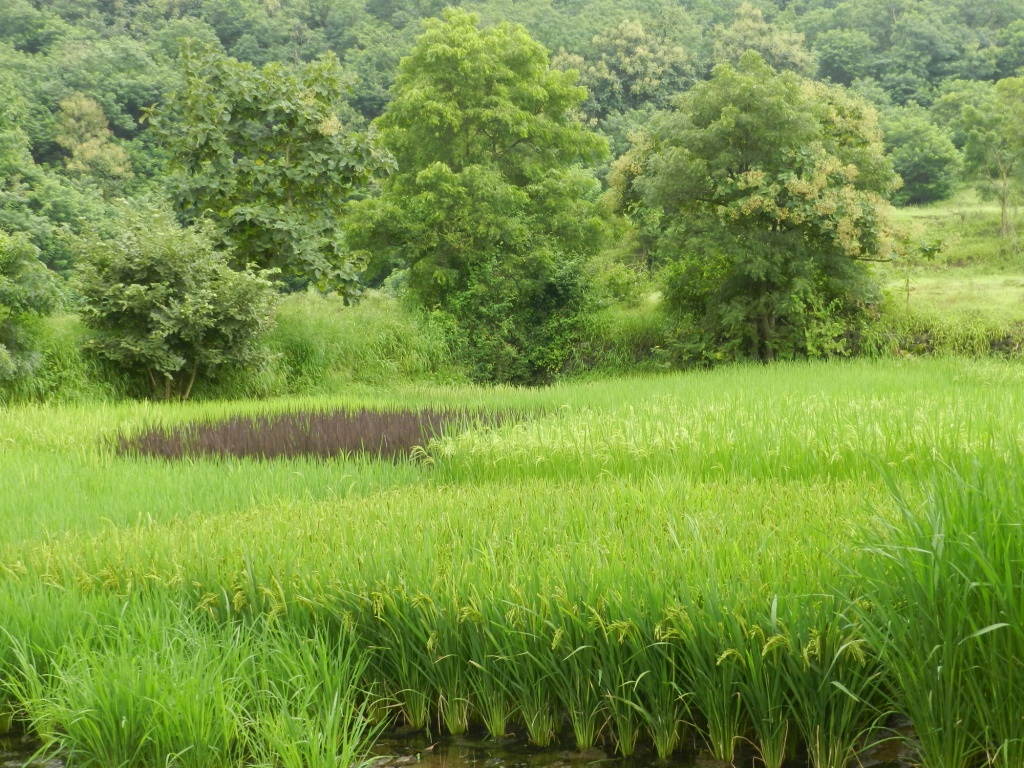Environment Education – Article by EVS teacher
I have been teaching Environmental science to Grade 11 and 12 for the last one year at Sahyadri school. This subject has been one of the most ignored ones in schools and the slot for EVS is often used by teachers to teach the “more important” subjects. Even if it is taught, it remains at a superficial level. Contrary to popular belief, this subject should be the focus of every school, not just because it is the need of the hour, but I believe that an understanding and appreciation of the environment and nature around us is what makes us human.
So what should an environment education look like? Should it focus on making sure that the students understand the 3R’s (Reduce, reuse and recycle)? Should it make us reduce our energy consumption by switching off the lights and fans and using public transport? Although we already know this, and have been learning about it since early childhood, then why is it that we struggle to put it into practice? Why is it that we are so knowledgeable and yet so ignorant at the same time?
If we look at some of the major events in the last one year, we have seen the Australian Bushfires and Amazon fires, we have seen 10 billion tons of ice sheets melt in a single day in Antarctica, we have seen half of our country suffer due to bad air quality during Diwali. Many reports claim that the Covid-19 pandemic is also a result of destruction of the environment. Aren’t these catastrophes which require our serious attention? Do we understand why we face these catastrophes in the first place? Aren’t most environmental problems a result of us wanting more of everything and desiring a convenient lifestyle? Although convenience is important, is there an end to it?
Thanks to a global environmental movement, more people have become aware of how politicians and big corporations have been let off without being held accountable for too long now. We are now also talking about how we need to change our lifestyle in order to reduce our carbon footprint. There are some who are moving towards a zero-waste lifestyle, going vegan and boycotting fast-fashion products. There have been conversations about making changes which everyone loves to talk about. However, I believe that change should not be our goal, but a by product. If we truly understand why generation of huge amounts of waste is problematic, we wouldn’t require too much effort in making the switch. If we truly understand how the fashion industry and the meat and dairy industry are exploiting the environment and causing immense suffering, then a change in our thought and lifestyle is natural.
Let’s take the example of a simple packaged snack that we see in all general stores and supermarkets. They consist of a plastic packaging which is not biodegradable. After we throw it in our trash bin, it will either be dumped in a landfill, or burnt in an incinerator or thrown into the sea. It doesn’t go away. There is no away. In addition to that, most of these products have palm oil as one of their ingredients. Palm oil monoculture plantations are fast replacing tropical rainforests, leading to mass destruction. So, by choosing to buy these products, we are placing a demand for palm oil, leading to loss of forest cover. Moreover, long term consumption of these products is associated with negative effects on health in the form of lifestyle diseases. Truly understanding and being able to see the consequences of our actions every time we choose to buy a packed snack should be the primary focus of this field.
Keeping this in mind, me and my students have explored a number of activities in class. We have spent time in the school farm, understood the working of the wastewater treatment plant in the campus, made shampoo in the dining hall, implemented waste segregation in school dorms, looked at how energy is produced from the solar panels on campus, watched documentaries, debated on different aspects of globalization and individual vs political action. The kind of environment that the school provides due to the presence of like-minded people makes it easier to incorporate various aspects in class.
Environmental Education is not about simply stating that massive deforestation is the result of global warming and hence we should plant more trees. It is about understanding the political and economic reasons that led to these massive destruction, the biology and chemistry behind understanding the biodiversity and the nature of human interference; and the lifestyle choices made by the public every single day; all of which together shape the environment. It is a subject which truly cuts across disciplines, and it is more relevant than ever before.

